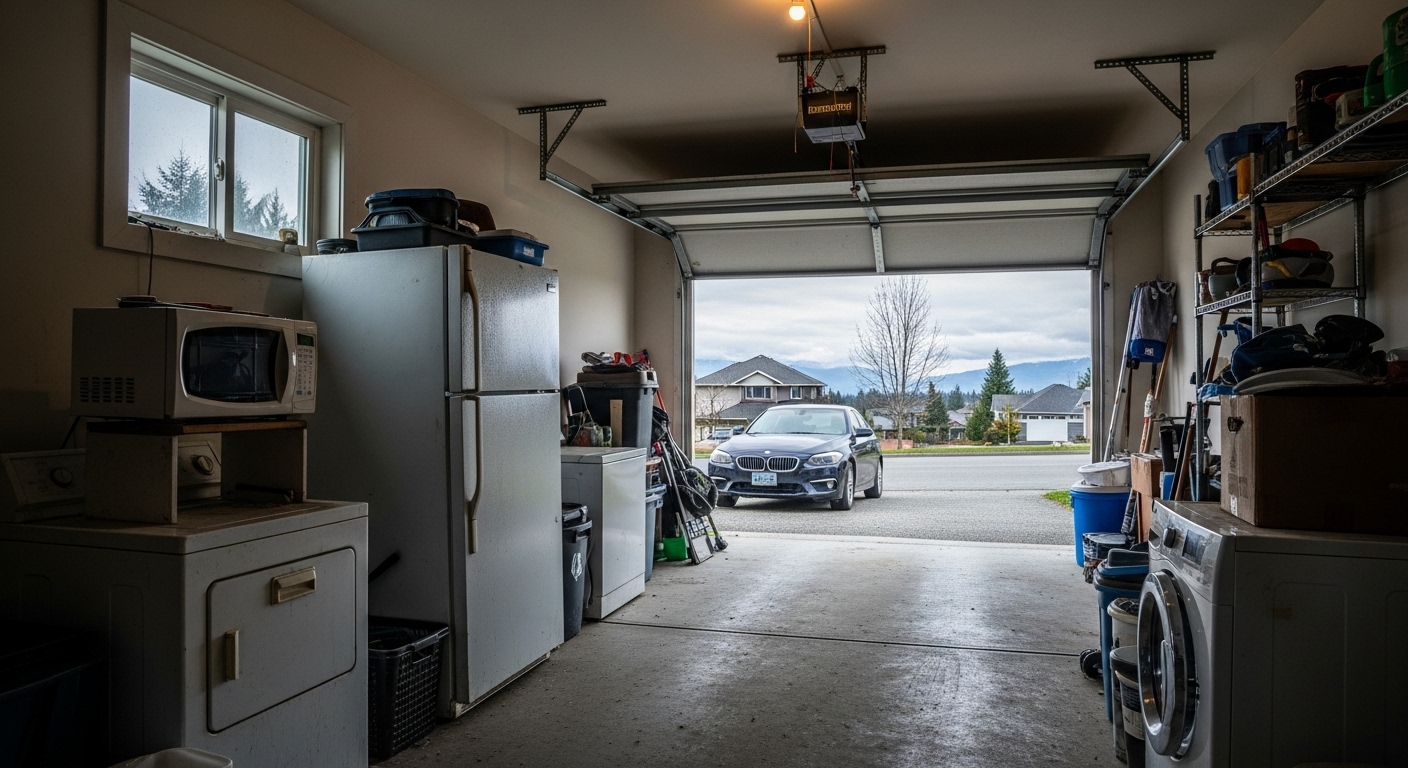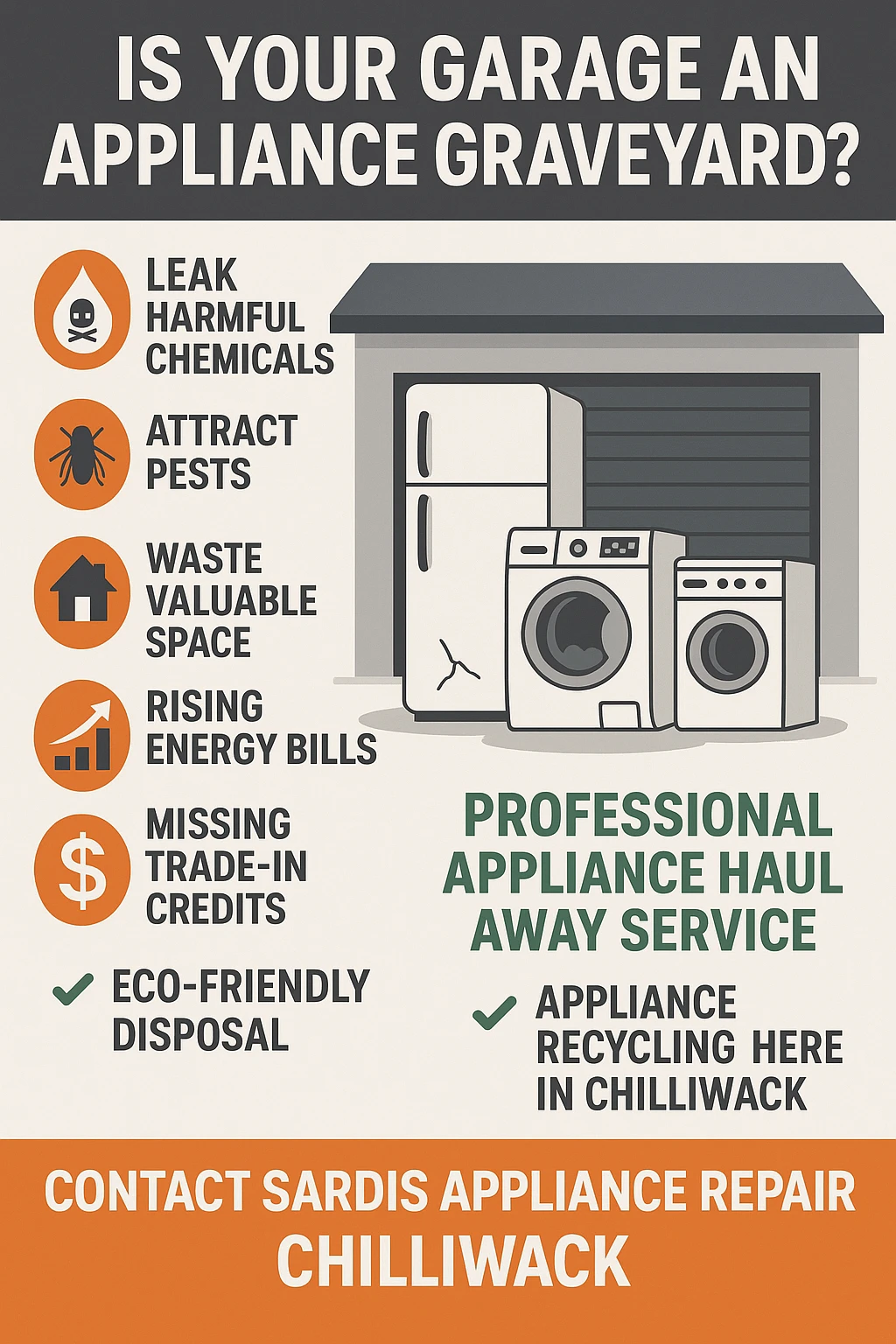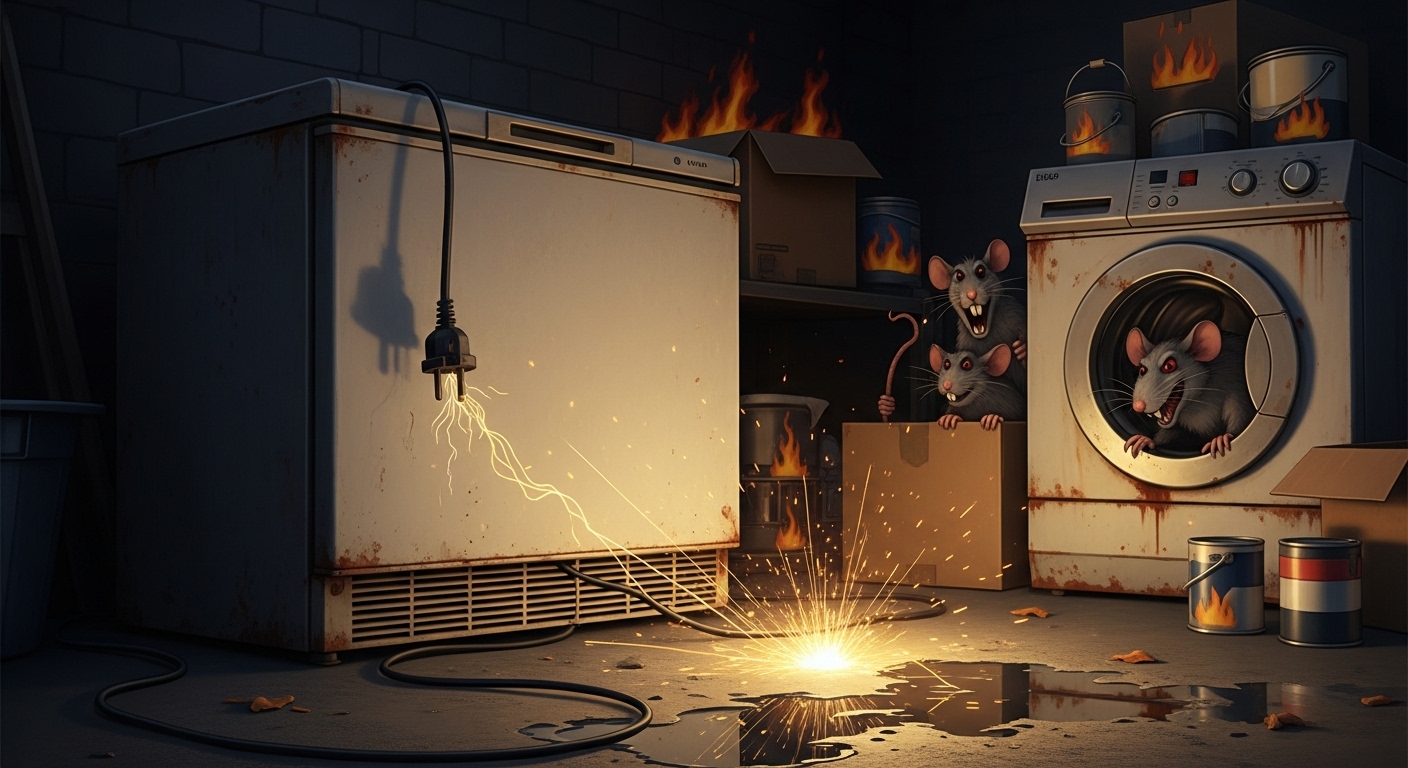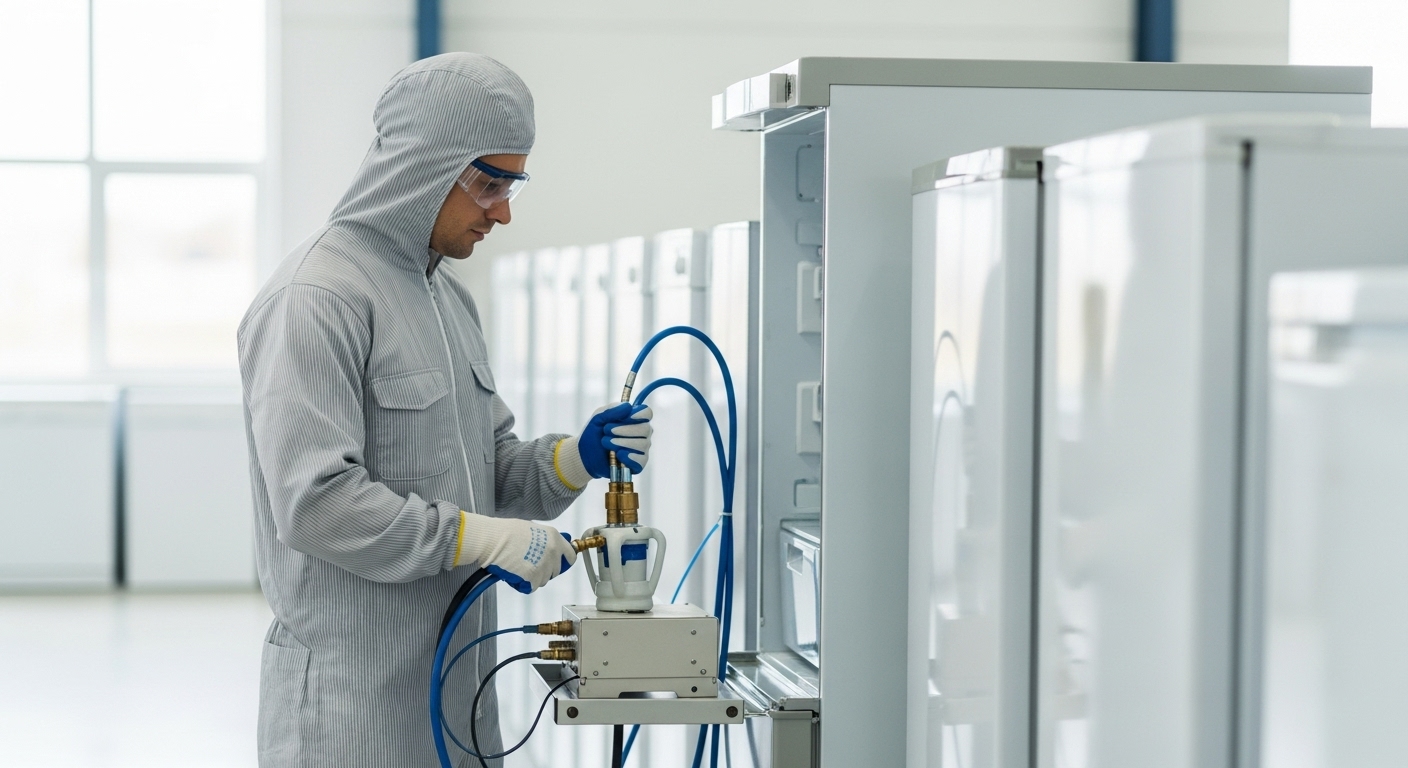The Appliance Graveyard: How Dead Appliances in Your Garage Are Costing You Money (And What Chiliwack Homeowners Should Do Instead)
Sick of that broken dishwasher taking up prime garage real estate while your car sits in the driveway? You’re not alone – but those “dead” appliances are quietly draining your wallet in ways you probably never imagined, from sneaky energy costs to insurance premium hikes that can hit Chiliwack homeowners hard.
Let me paint you a picture that’s probably way too familiar. You upgraded your kitchen last spring, and that old fridge is “temporarily” chilling in the garage until you figure out what to do with it. Fast forward six months, and it’s joined by a washing machine that gave up the ghost, a microwave with a busted door, and maybe even that ancient freezer from your basement. Sound about right? 
Here’s the thing though – what feels like harmless storage is actually costing you serious money. We’re talking hundreds of dollars a year in hidden expenses that most Fraser Valley homeowners don’t even realize they’re paying. From phantom energy draw to pest problems and even potential insurance issues, your garage appliance graveyard is working against your wallet 24/7.
The good news? Chiliwack has some seriously solid options for getting rid of these space-hogging money drains, and some of them might even put cash back in your pocket. Let’s dive into why those “temporarily stored” appliances need to go, and exactly how to make that happen without breaking the bank.
Key Outtakes:
- Dead appliances increase your energy bills by up to $200 annually while creating fire hazards and attracting pests to your garage space
- Chiliwack residents can choose from multiple disposal options, from free MARR program drop-offs to professional removal services starting at just $49
- Smart homeowners can actually make money through scrap metal recycling, with old refrigerators containing $15-30 worth of recoverable materials
- Cluttered garages with stored appliances may trigger insurance premium increases due to elevated fire and liability risks
- Environmental regulations require proper handling of hazardous substances like refrigerants and PCBs found in older appliances, making DIY disposal risky

The Hidden Financial Drain of Your Garage Appliance Collection
Okay, so you think that unplugged fridge in your garage isn’t costing you anything, right? Wrong. Even “dead” appliances can be energy vampires, and the older they are, the worse it gets. If you’ve got any of these babies still plugged in “just in case,” you’re basically lighting money on fire every month. We’re talking about appliances that can cost over $200 more per year to run compared to modern ENERGY STAR models.
But here’s where it gets really sneaky – even unplugged appliances are costing you money in ways you probably never considered. Insurance companies are getting pretty sophisticated about assessing risk these days, and guess what they don’t love? Cluttered garages packed with old appliances that create fire hazards and liability issues. Some insurers are even using drone inspections now to check out property conditions, and a garage stuffed with old appliances can actually trigger premium increases.
Think about it this way – your garage is supposed to be functional space. When it’s packed with dead appliances, you’re losing out on storage value, workshop potential, or even just the ability to park your car inside during those brutal Fraser Valley winters. Real estate pros in our area consistently report that functional garage space can add $1,000-$2,000 to your home’s value. So every month those appliances squat in your garage, they’re actively working against your property’s worth.
The math is pretty brutal when you add it all up. Energy costs, insurance impacts, lost functionality, and the ongoing frustration of not being able to use your space properly. Most Chiliwack homeowners are looking at hundreds of dollars in annual costs just to house appliances they’ll never use again. And that’s before we even talk about the safety issues that come next.
Safety Hazards: When Your Garage Becomes a Danger Zone
Your appliance graveyard isn’t just expensive – it’s genuinely dangerous in ways that might surprise you. Even “broken” appliances can still create electrical hazards, especially when they’re stored alongside typical garage items like paint, oil, cleaning supplies, and cardboard boxes. It’s like creating the perfect recipe for a house fire, and electrical fires from malfunctioning appliances are unfortunately super common. 
Here’s something most people don’t realize: gas appliances like dryers can continue emitting carbon monoxide even when they’re not running, especially if they’re malfunctioning. In a poorly ventilated garage attached to your house, those CO levels can build up and actually affect your living spaces. We’re talking about a silent, odorless killer that could be seeping into your home right now.
Now let’s talk about everybody’s favorite garage visitors – pests. Old refrigerators and dishwashers are like luxury hotels for rodents, spiders, and cockroaches. These appliances provide perfect nesting spots, and any food residue left inside becomes a five-star dining experience for unwanted critters. Once pests establish themselves in your garage, they don’t stay there – they’ll explore your entire property looking for more food and shelter.
The pest situation gets expensive fast too. Professional extermination services in the Fraser Valley can run $200-500 depending on the severity of the infestation. Plus, once you’ve got rodents, they can cause serious damage to insulation, wiring, and stored items. I’ve seen homeowners deal with thousands in damage because mice decided that old washing machine was the perfect place to start a family.
And here’s a safety issue that really gets overlooked – accessibility and emergency concerns. If there’s a fire or medical emergency, first responders need clear access to your garage and home. A garage packed with old appliances can seriously impede emergency access, potentially turning a manageable situation into something much worse. It’s one of those things you never think about until it’s too late.
Environmental Impact and Legal Requirements You Can’t Ignore
This is where things get really serious from a legal standpoint. Those old appliances aren’t just taking up space – many of them contain hazardous materials that require special handling under federal and provincial regulations. We’re talking about substances that can seriously harm the environment and human health if they’re not disposed of properly.
Refrigerators and freezers are the big culprits here. Federal law requires that all refrigerant be recovered before disposal, and this isn’t optional. These refrigerants, especially in appliances manufactured before 1995, often contain chlorofluorocarbons that are major environmental hazards. A single improperly disposed refrigerator can have the same climate impact as driving 1,500 miles. That’s a pretty hefty environmental footprint for something sitting in your garage. 
Then there are PCBs – polychlorinated biphenyls – which sound scary because they are. Appliances manufactured before 1979 may contain PCB capacitors, and these chemicals are regulated under the Toxic Substances Control Act. PCBs are known carcinogens and can cause a whole range of health problems. If these substances leak in your garage, you could be looking at soil contamination issues and serious liability.
Here’s what gets really concerning: mercury switches and used oil are also common in older appliances. Mercury is toxic to both humans and wildlife, and improper disposal can lead to contamination of groundwater and soil. Used oil contains heavy metals and other contaminants that require special handling. The EPA has documented extensive contamination issues from improper appliance disposal.
The legal implications are serious too. Improper disposal of hazardous materials can result in significant fines and ongoing environmental liability. We’re talking about potential cleanup costs that can reach tens of thousands of dollars if contamination occurs. It’s not worth the risk when proper disposal options are readily available in Chilliwack.
The good news is that British Columbia has excellent systems in place for handling these materials safely. The province maintains a 92% appliance recovery rate, with proper separation of ferrous metals, non-ferrous materials, and plastics. But you have to use the proper channels – you can’t just dump these
 (604) 305-2992
(604) 305-2992 
 Schedule An Appointment
Schedule An Appointment 